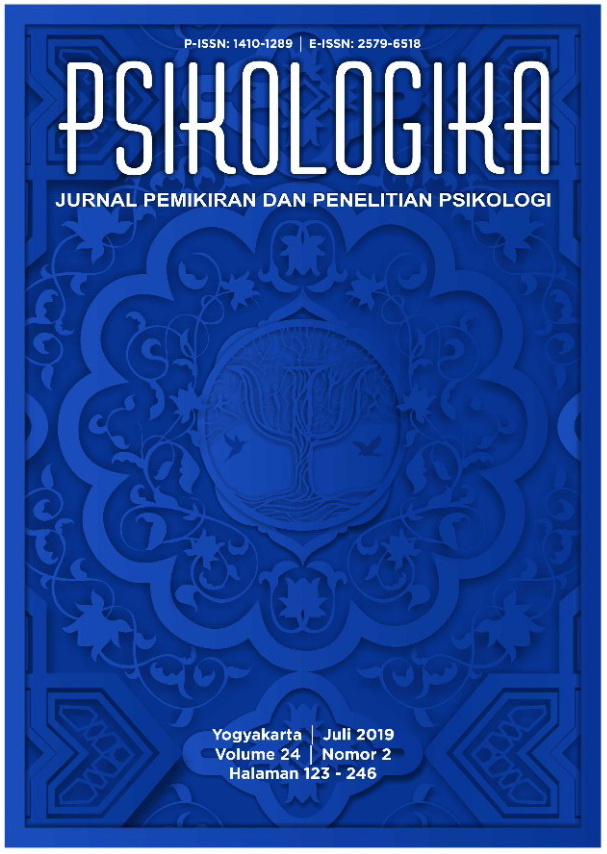Main Article Content
Abstract
Adversity quotient play an important role in the life of every student of Islamic boarding school, especially Quran reciter student. The life of the boarding school with strict regulations and a busy schedule of activities requires students to have a high adversity quotient. Only students who have the ability to control themselves and good interpersonal relationships can survive in the boarding school. This study aimed to test the effect of self-regulation and peer attachment on the adversity quotient of Quran reciter students. There were 127 students of Islamic boarding school situated in Ngaliyan Sub-district, Semarang City, involved as the samples, which were collected using sampling quota technique. The data were collected using self-regulation scale, peer attachment scale, and adversity quotient scale, and were analyzed using multiple regression technique. The result of the analysis showed that self-regulation and peer attachment have simultaneous and partial effects on adversity quotient. Simultaneously the two independent variables affect the adversity quotient by 40.9%, while partially self regulation can affect the adversity quotient greater, that is by 62.1%, and peer attachment affects by 12.8%. Activities that are oriented towards increasing self-regulation of students and increasing peer-attachment among students become important implications of the results of research.
Article Details
License
Authors who publish with this journal agree to the following terms:
- Authors retain copyright and grant the journal right of first publication with the work simultaneously licensed under a Creative Commons Attribution-ShareAlike 4.0 International License that allows others to share the work with an acknowledgment of the work's authorship and initial publication in this journal.
- Authors are able to enter into separate, additional contractual arrangements for the non-exclusive distribution of the journal's published version of the work (e.g., post it to an institutional repository or publish it in a book), with an acknowledgment of its initial publication in this journal.
- Authors are permitted and encouraged to post their work online (e.g., in institutional repositories or on their website) prior to and during the submission process, as it can lead to productive exchanges, as well as earlier and greater citation of published work (See The Effect of Open Access).
